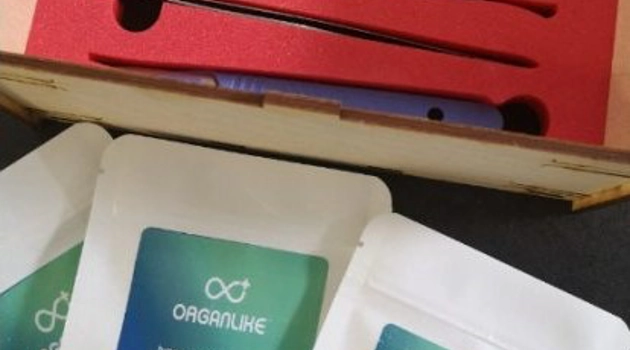
An innovative project which started in the Highlands is assisting surgical students in Scotland, and may soon be rolled out to trainees in Zimbabwe, Kenya and Malawi.
As reported by STV news, a mini ‘operating theatre in a box’ the size of a bag of sugar has been helping medical students sharpen their skills at home during lockdown.
The Surgical Skills Kit has been developed to help students hone their techniques using real equipment and 3D-printed bio-synthetic organs which mimic the texture of real human tissue. The kit was designed by Campus-based companies 4C Engineering and Organlike Ltd, with input from Medtronic UK, and funding from Innovate UK.
Equipped with medical implements such as a scalpel, scissors and sutures, these cutting-edge sewing kits are helping educate the surgeons of the future.
The pandemic has meant medical students across the UK can’t practice in the normal university environment and those behind the project say the boxes are essential to help plug potential gaps in future medical staffing.
Inverness-based Professor Angus Watson of the Royal College of Surgeons, said: “There are 43 medical schools across the UK and we want to get them all involved in surgical skills.
“We are sending the medical students state-of-the-art hyper realistic tissue.
Second year University of Aberdeen medical student Euan Ramsay says the surgical skills box has been a brilliant way to practice techniques that he hopes to put to good use in the future.
He said: “For somebody who is interested in surgery, having access to these things to try is really useful, especially the realistic organ material.
“That’s something that as a student you would very rarely get the chance to practice with.”
Students will film themselves using the kits as part of a national competition this month, with the winner going on to gain experience with the latest surgical equipment and two years’ affiliation with The Royal College of Surgeons of Edinburgh.
Prof Watson added: “For many medical students and probably many professions it will be a lost year.
“Medical students can learn from webinars and online lectures and things but acquiring practical skills that are going to benefit patients in the future could have been a problem.
“Surgeons are made, they are not born, and we are a bit like sportsmen and women, we have to practice, practice, practice and acquire our surgical skills to achieve mastery, which ultimately will improve the care of our patients.”
The kits won’t just benefit Scottish medicine. Plans are now in place to have them sent to Zimbabwe, Kenya and Malawi to help healthcare professionals in training there.

